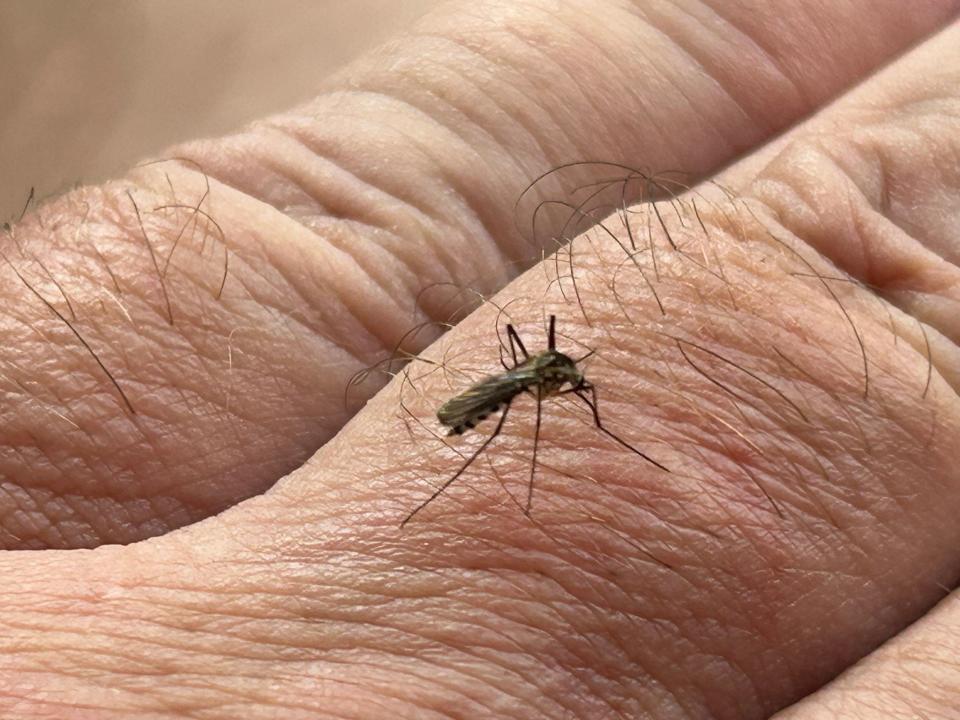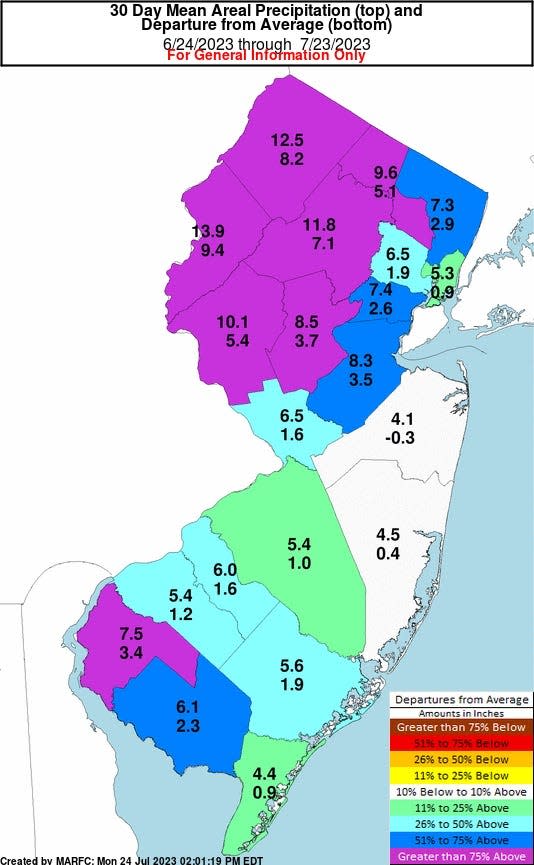July rains created 'perfect storm for mosquitoes' in NJ. Here's how to avoid the bites
A dry spring brought high hopes to New Jersey residents itching for a carefree summer without hordes of blood-sucking insects waiting to exact their corpuscular tolls at every exit.
But July brought a deluge of rain, and the dreaded Jersey Skeeter is back in full force and fury, authorities say, especially for the waterlogged counties in the north and northwestern parts of the state.
"It's not been a challenging year, but it's been an extremely challenging month," said Kris McMorland, longtime director of Morris County's Department of Mosquito Control. "Prior to that, it was very dry and very manageable. Then July hit, and all these crazy storms have created a perfect storm for mosquitoes."
North Jersey braces for heat wave: Temperatures could 'reach the century mark'
The heavy rains, which actually began in late June, have resulted in the inevitable pooling of water, both naturally and in man-made objects. That's created reservoirs where mosquitoes can grow from egg to adversary in about a week.

As of Tuesday, a National Weather Service precipitation map showed rain totals over the past 30 days running up to 67% higher than normal. Precipitation was 5.1 inches above average in Passaic County, 7.1 inches in Morris, 8.2 inches in Sussex and 9.4 inches above the norm in Hunterdon.
Bergen County was 2.5 inches above normal.
"Some of these storms have produced rains like hurricanes," McMorland said. "It's just been constant, crazy."
The result has been a baby boom of biting mosquitos that has Morris County authorities spraying pesticides in different neighborhoods on a daily basis.
North Jersey: Yeah those summer storms ruined your picnic. But reservoirs are nearly full
"The traps I see coming in, traps that maybe we would have gotten a dozen or so, we're getting like a thousand in there," McMorland said. "And that's just a small sample that we're capturing to see what is going on in that location."
'Relentless' biters

Making matters worse are the particular species of mosquitoes proliferating this year, which seem to embrace the take-no-prisoners Jersey attitude.
"A lot of the species we're dealing with are these flood-plain mosquitoes that are very aggressive," McMorland said. "These things are just relentless."
Those ravenous, reprobate species include the aedes vexans, or inland floodwater mosquito. VDCI, a national mosquito management company, describes it as "a major nuisance, the females biting in the evening, peaking in activity an hour or so after sunset."
Another less-common but still Jersey-favoring mosquito species fingered by McMorland this summer is the ochlerotatus sticticus, whose females are described as "aggressive human biters that may attack during daylight hours."
"Normally I would say try to avoid dawn and dusk," McMorland said of this year's mosquito population. "But there's some areas where they are just out all the time."
Looking to cool off? Here are five places you can swim in North Jersey this summer
How to control mosquito outbreaks
The advice from Morris County and other mosquito experts starts with the elimination of standing water pools.
"We still want everyone to empty their containers and such, because mosquitoes will use that," McMorland said. "But there's so much natural habitat outside of people's yards, especially if you live along one of the river flood plains, mainly the Passaic River. The best bet is to let us keep doing what we're doing, which is basically nonstop treating, and wear a repellent."
They specifically urge the following:
Remove standing water from:
containers
flower pots and saucers
kiddie pools
garbage cans
tarps
Clean outdoor areas:
Birdbaths once a week
Add a fountain or fish to an ornamental pond
Gutters on your house
Use screens to prevent mosquitoes from entering the home.
Keep ditches and stormwater facilities free of debris
Recycle old tires
Make sure downspouts are draining
What else can I do?
McMorland suggests using a government-approved mosquito repellant. The Environmental Protection Agency offers an online search tool to help find the insect repellant that is right for you.
"It takes time to get them under control, but we will," McMorland said.
William Westhoven is a local reporter for DailyRecord.com. For unlimited access to the most important news from your local community, please subscribe or activate your digital account today.
Email: wwesthoven@dailyrecord.com Twitter: @wwesthoven
This article originally appeared on Morristown Daily Record: NJ mosquito bites spread after July storms, rainy weather

